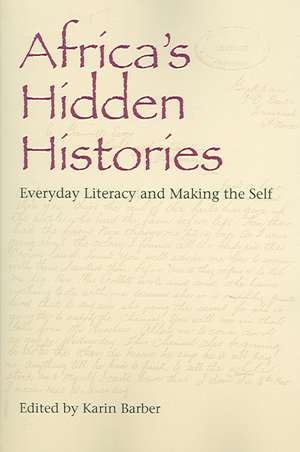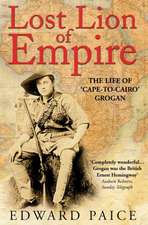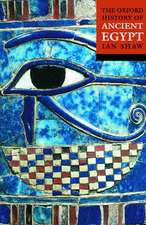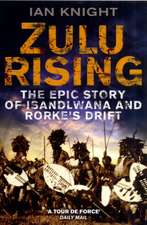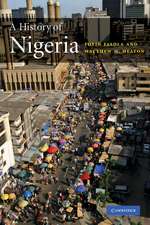Africa`s Hidden Histories – Everyday Literacy and Making the Self
Autor Karin Barberen Limba Engleză Paperback – 12 iul 2006
Preț: 263.83 lei
Nou
Puncte Express: 396
Preț estimativ în valută:
50.48€ • 52.82$ • 41.94£
50.48€ • 52.82$ • 41.94£
Carte tipărită la comandă
Livrare economică 03-17 aprilie
Preluare comenzi: 021 569.72.76
Specificații
ISBN-13: 9780253218438
ISBN-10: 0253218438
Pagini: 464
Ilustrații: 34
Dimensiuni: 157 x 235 x 29 mm
Greutate: 0.65 kg
Editura: MH – Indiana University Press
Locul publicării:United States
ISBN-10: 0253218438
Pagini: 464
Ilustrații: 34
Dimensiuni: 157 x 235 x 29 mm
Greutate: 0.65 kg
Editura: MH – Indiana University Press
Locul publicării:United States
Cuprins
Introduction: Hidden Innovators in Africa Karin BarberPart 1. Diaries, Letters, and the Constitution of the Self1. "My Own Life": A. K. Boakye Yiadom's Autobiography--The Writing and Subjectivity of a Ghanaian Teacher-Catechist Stephan F. Miescher; 2. "What is our intelligence, our school going and our reading of books without getting money?" Akinplu Obisan and His Diary Ruth Watson; 3. The Letters of Louisa Mvemve Catherine Burns; 4. Ekukhanyeni Letter-Writers: A Historical Inquiry into Epistolary Network(s) and Political Imagination in Kwazulu-Natal, South Africa Vukile Khumalo; 5. Reasons for Writing: African Working-Class Letter-Writing in Early-Twentieth-Century South Africa Keith Breckenridge; 6. Keeping a Diary of Visions: Lazarus Phelalasekhaya Maphumulo and the Edendale Congregation of AmaNazaretha Liz Gunner; 7. Schoolgirl Pregnancies, Letter-Writing, and "Modern" Persons in Late Colonial East Africa Lynn M. ThomasPart 2. Reading Cultures, Publics, and the Press8. Entering the Territory of Elites: Literary Activity in Colonial Ghana Stephanie Newell; 9. The Bantu World and the World of the Book: Reading, Writing, and "Enlightenment" Bhekizizwe Peterson; 10. Reading Debating/Debating Reading: The Case of the Lovedale Literary Society, or Why Mandela Quotes Shakespeare Isabel Hofmeyr; 11. "The present battle is the brain battle": Writing and Publishing a Kikuyu Newspaper in the PreMau Mau Period in Kenya Bodil Folke Frederiksen; 12. Public but Private: A Transformational Reading of the Memoirs and Newspaper Writings of Mercy Ffoulkes-Crabbe Audrey GadzekpoPart 3. Innovation, Cultural Editing, and the Emergence of New Genres13. Writing, Reading, and Printing Death: Obituaries and Commemoration in Colonial Asante T. C. McCaskie; 14. Writing, Genre, and a Schoolmaster's Inventions in the Yoruba Provinces Karin Barber; 15. Innovation and Persistence: Literary Circles, New Opportunities, and Continuing Debates in Hausa Literary Production Graham Furniss
Recenzii
This is on many levels an exceptionally engaging book.... Africa's everyday writers can have no better introduction to the scholarly world than Karin Barber's exciting book. This is a volume that should command wide readership.--Derek R. Peterson, Selwyn College, University Cambridge"Jrnl Royal Anthropological Inst JRAI" (01/01/2008)
Notă biografică
edited by Karin Barber
Descriere
A private and personal look into the world of everyday Africans as they put pen to paper
